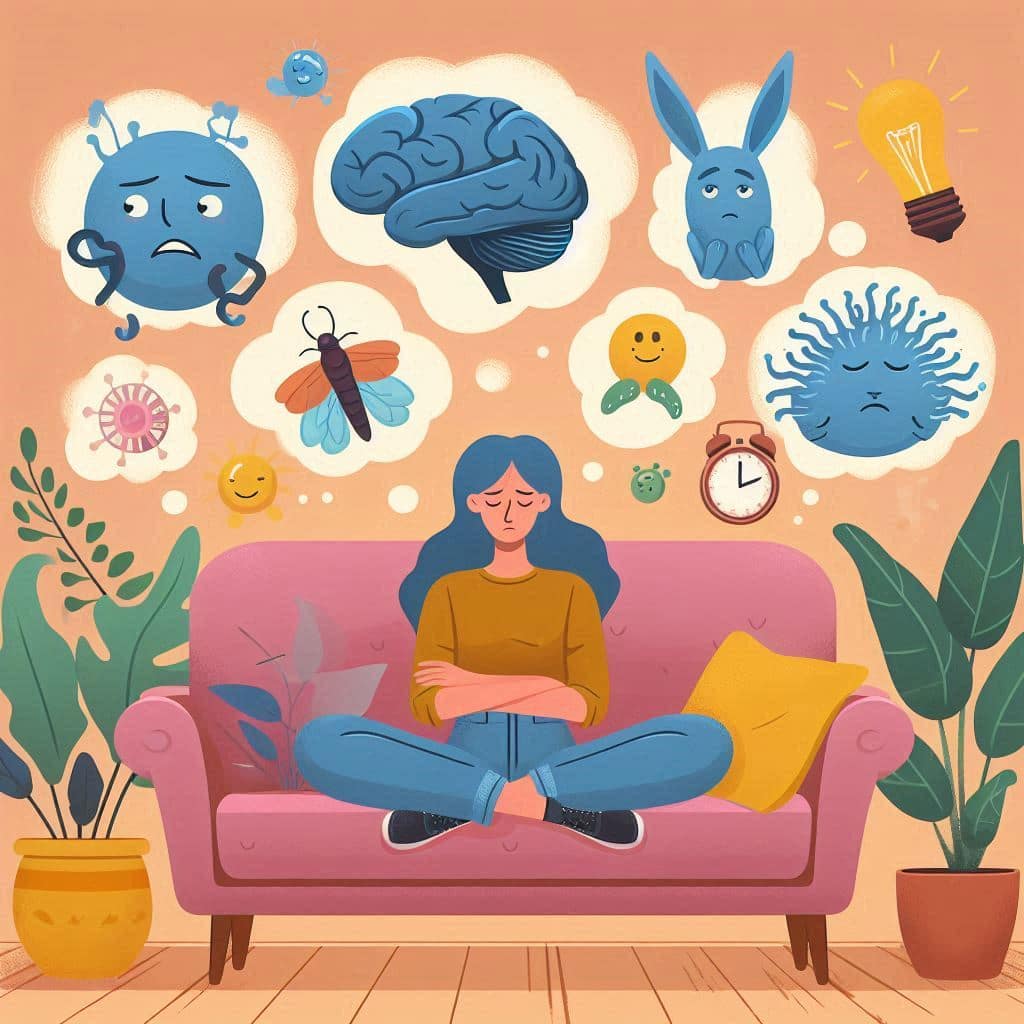The way you think affects the way you feel

Do you often feel like something bad is always lurking around the corner? Do you spend too much time worrying about things that may never happen?
Anxiety has many causes. Even someone with no history of mental health issues can develop anxiety in high-stress environments — like a war zone. On the flip side, some people can experience intense anxiety even when they’re in a safe, stable environment with loving support around them. Why? Because anxiety isn’t always tied to external circumstances. Often, it’s about how your brain processes and interprets situations.
Most of us exist somewhere in between those extremes. We have challenges to face, but somehow, we feel far more anxious than others who seem to have more significant problems.
A lot of that anxiety comes down to mindset. I know this because I’ve been there. And a few key mindset shifts have helped me go from being stuck in a spiral of overwhelming anxiety to living a more balanced, calmer life.
Here’s what helped me.
1) Stop Trying to Predict the Future — Focus on Being (Moderately) Prepared
This might sound counterintuitive. How can you be prepared if you’re not constantly trying to predict what’s going to happen?
For years, I was caught in the trap of overthinking. I’d play out every possible worst-case scenario in my mind, convinced that I was keeping myself safe by being “prepared.” But I wasn’t. All I was doing was exhausting myself, ruining my sleep, and stressing myself out.
What I eventually realized is that anticipation and preparedness are not the same thing. You can’t predict everything that’s going to happen — but you can take reasonable steps to make sure you’ll be okay no matter what.
For example, instead of analyzing every conversation with your boss and obsessing over whether you’re about to get fired, you can take practical steps to protect yourself. Build an emergency fund. Strengthen your professional network. Update your resume. That way, if the worst-case scenario does happen, you’ll be ready to pivot without falling into panic mode.
2) Problems Will Always Exist — Choose Better Problems
For a long time, I believed that if I just solved all my problems, I’d finally be able to relax and enjoy life. I chased this idea of a “perfect” life where everything was smooth sailing. But that’s not how life works.
The truth is, you’ll always have problems. Life doesn’t get easier — but if you make better choices, you can swap bad problems for better, more manageable ones.
For example, being unemployed is a problem. But so is having a high-stress, demanding job that leaves you burnt out. The difference is that you can choose to solve one by taking steps toward a career that aligns with your values and brings you fulfillment. This doesn’t eliminate all stress, but it puts you in control of the kind of challenges you’re willing to take on.
I’ve learned to accept that life will never be problem-free. The goal is to work toward problems that are worth dealing with.
3) Don’t Believe Everything Your Brain Tells You
Anxiety loves to tell stories — and they’re almost always negative. My brain used to be a 24/7 disaster channel, broadcasting worst-case scenarios that felt all too real.
Eventually, I had to learn that just because I think something doesn’t mean it’s true. Our brains are wired to detect threats, and sometimes, they go overboard, perceiving danger where none exists.
When I feel my anxiety spiraling, I’ve learned to take a step back and ask myself:
- Is this thought based on facts or assumptions?
- What’s the likeliest outcome, not just the worst-case scenario?
- Have I been in a similar situation before, and how did it actually turn out?
Most of the time, the answers help me see that my anxiety isn’t rooted in reality. This simple act of questioning my thoughts has been one of the most powerful tools in quieting my anxious mind.
4) Focus on What You Can Control — Let Go of What You Can’t
One of the biggest contributors to anxiety is trying to control things that are completely out of our hands. I used to spend so much energy worrying about what other people were thinking, how situations would unfold, or whether I’d be liked or accepted.
It was exhausting.
Now, I’ve shifted my focus to what I can control — my actions, my responses, and my choices. I can’t control how other people feel or behave, but I can control how I handle situations and how much energy I’m willing to invest in things that drain me.
When I stopped trying to control the uncontrollable, I freed up so much mental space. It gave me room to focus on things that genuinely improve my life.
5) Progress Over Perfection — Celebrate Small Wins
Perfectionism and anxiety go hand in hand. For years, I felt paralyzed by the belief that if I couldn’t do something perfectly, it wasn’t worth doing at all. This mindset kept me stuck, constantly procrastinating out of fear of failure.
But I’ve learned that progress, not perfection, is what truly matters. Small steps forward, no matter how imperfect, still move you in the right direction.
When I shifted my focus to celebrating small wins — whether it was completing a task, facing a fear, or even just acknowledging my effort — I began to feel more confident and less anxious.
Final Thoughts: Shifting Your Mindset Can Change Everything
Mindset shifts don’t happen overnight. It takes practice and patience, but over time, these changes can drastically improve your relationship with anxiety.
If you find yourself constantly battling anxious thoughts, remember that you have more control than you think. By tweaking how you think about challenges, uncertainty, and progress, you can regain control over your mind — and your life.
Anxiety may never disappear completely, but with the right mindset, you can learn to live with it in a way that empowers you, instead of letting it hold you back.



